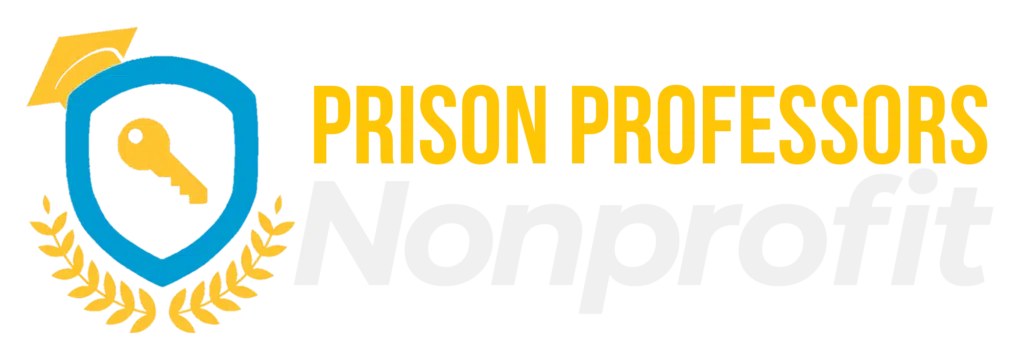Advocacy & Validation
Advocacy & Validation
Empowering transformation through education
Pathway to Advocacy
Upon my release from prison, on August 12, 2013, San Francisco State University hired me to teach as an adjunct professor. While teaching The Architecture of Incarceration, I simultaneously collaborated with leaders at:
- Stanford University,
- UC Berkeley,
- UC Hastings Law School, and
- The Robina Institute at the University of Minnesota Law School.
I wrote or spoke about changing America’s criminal justice system in all my presentations. Rather than measuring justice by turning calendar pages, I urged leaders to join efforts to reform prison and sentencing laws. I advocate for reforms that allow people to earn freedom through merit.
Inspiring Legal Reform
In 2015, the UC Hastings Law Review invited me to publish Incentivizing Excellence. Based on my work, The Ninth Circuit Court of Appeals invited me to keynote a judicial conference. More than 1,000 people attended the conference. Federal judges, the Department of Justice leaders, and leaders from America’s prison system filled the room.
During my presentation, I asked the leaders to assist in efforts for reform. Following the presentation, opportunities opened for me to work with the Department of Justice, the judiciary, the California Department of Corrections, and the Federal Bureau of Prisons.
In 2018, a bi-partisan Congress passed the First Step Act. With that legislation, thousands of people in federal prisons get opportunities to earn freedom.
UC Hastings
Since 1984, the federal criminal justice system moved steadily from indeterminate to determinate sentences. Those changes led to the abolition of the US Parole Commission and fewer opportunities for people to earn credits that could advance their release dates. I worked to change that system. People were not receptive. The system had become entrenched with a culture that obliterated hope.
I wrote Earning Freedom: Conquering a 45-Year Prison Term to inspire reform. UC Hastings Law Review allowed me to publish Incentivizing Excellence, an article that opened discussions that led to the First Step Act.
Department of Justice
US Attorney Alicia Limtiaco invited me to spend a full week in Guam and Saipan to begin a reentry program. On that trip, I got to work closely with the Department of Justice, the U.S District Courts, and US Probation. While in Guam and Saipan, I led training sessions, participated in community awareness programs, and visited people serving sentences in jails and prisons to introduce our program.
Multi-Modal Advocacy
Building advocacy programs requires a multi-pronged approach. We must work to create programs that we can bring into prisons. Then we must work to build relationships with more prison administrators. Data must show that our programs improve the culture of confinement, preparing more people for success upon release. Then, we must bring awareness to the broader population, showing the value of reforms that incentivize excellence.
First Step Act
Despite thousands of people advocating for criminal justice reform for many years, meaningful changes did not come until Jared Kushner pushed for reforms. Since visiting a federal prison when his father served a sentence for a white-collar crime, Jared understood that the system needed changes. When voters elected his father-in-law to the White House, Jared began pushing for reforms.
In December 2018, President Trump signed the First Step Act. That legislation would influence the lives of more than 1 million people. It presented a first step toward incentivizing excellence by authorizing “time credits.” With time credits, qualified people could earn rewards for participating in recidivism-reduction programs.
Several years passed before the Bureau of Prisons began authorizing programs leading to time credits. We’re proud to have an approved program in the Bureau of Prison’s official catalog.
Validation
Thanks to a generous grant from Bill and Marie McGlashan, PPCC retained Dr. Stacy Calhoun, a social-science research professor from UCLA to conduct a preliminary study on the effectiveness of the Preparing for Success after Prison program. A collaboration with the Edovo nonprofit allowed us to collect data from more than 1,000 justice-impacted people who worked through our course, Preparing for Success after Prison.
In 2024, Dr. Calhoun expects to publish her findings in a peer-reviewed journal. We anticipate that her findings will show the impact we’re having on improving outcomes for people in jails and prisons.
Publishing Dr. Calhoun’s findings from her research in a peer-reviewed journal is a first step toward becoming an evidence-based program. We will need to conduct further research, over many years to show the impact of our program on lowering recidivism. To gather such data, people must:
- Advance through our program,
- Build a record that shows their preparations for success upon release,
- Complete the service of their sentence (which could require years),
- Demonstrate that they are living as responsible, law-abiding citizens despite the term they served in prison.
Published findings with Dr. Calhoun’s research will allow us to open conversations with the National Institute of Justice and other government agencies in pursuit of additional funding for ongoing research with Dr. Calhoun and her team of researchers at UCLA.

